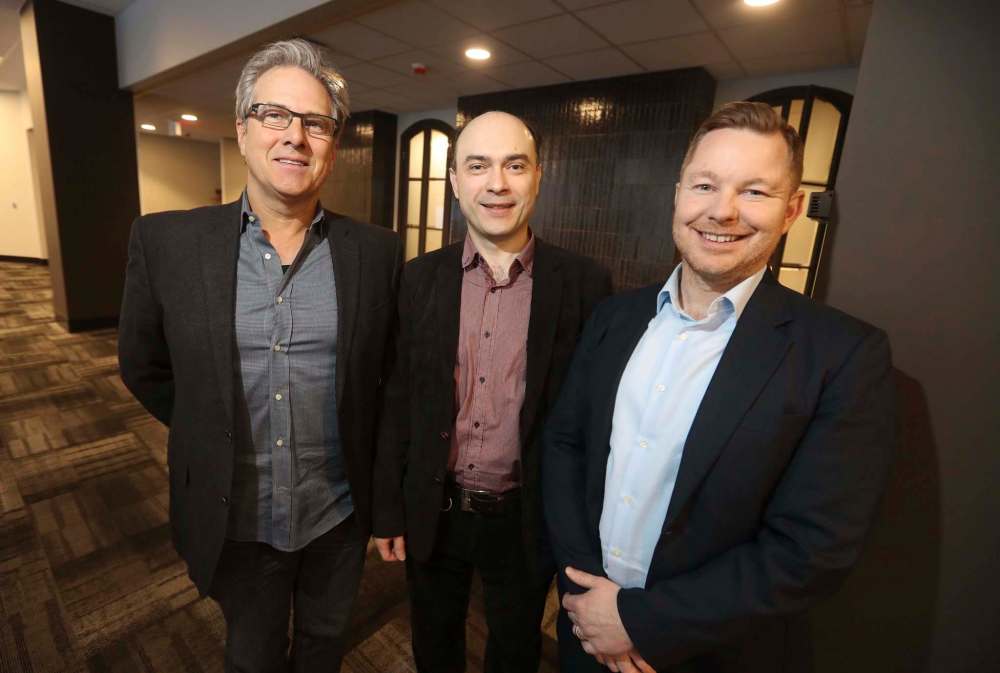Startup Visa program hopes to attract immigrants with business ideas, capital
Advertisement
Read this article for free:
or
Already have an account? Log in here »
To continue reading, please subscribe:
Monthly Digital Subscription
$0 for the first 4 weeks*
- Enjoy unlimited reading on winnipegfreepress.com
- Read the E-Edition, our digital replica newspaper
- Access News Break, our award-winning app
- Play interactive puzzles
*No charge for 4 weeks then price increases to the regular rate of $19.00 plus GST every four weeks. Offer available to new and qualified returning subscribers only. Cancel any time.
Monthly Digital Subscription
$4.75/week*
- Enjoy unlimited reading on winnipegfreepress.com
- Read the E-Edition, our digital replica newspaper
- Access News Break, our award-winning app
- Play interactive puzzles
*Billed as $19 plus GST every four weeks. Cancel any time.
To continue reading, please subscribe:
Add Free Press access to your Brandon Sun subscription for only an additional
$1 for the first 4 weeks*
*Your next subscription payment will increase by $1.00 and you will be charged $16.99 plus GST for four weeks. After four weeks, your payment will increase to $23.99 plus GST every four weeks.
Read unlimited articles for free today:
or
Already have an account? Log in here »
Hey there, time traveller!
This article was published 18/01/2019 (2499 days ago), so information in it may no longer be current.
Dmitry Zvonov’s hometown of Barnaul in Siberia is city close to the same size as Winnipeg and has a similar climate.
Speaking from downtown Winnipeg on Friday afternoon with temperatures around minus 26, Zvonov, 44, was likely one of the few recent immigrants to the province who could say honestly that “the weather is fine today.”
In fact, he is partly here precisely because of the extreme cold winter temperatures like the city is currently experiencing.

Zvonov has been qualified to participate in a newly revised federal government program to attract immigrants with startup business ideas, called the Startup Visa program.
He has developed an all-natural solid fuel that burns with no residue, is light weight, odorless, smokeless, environmentally friendly, water resistant and perfectly capable of igniting and burning in temperatures as low as minus 70. He believes the product has many applications and is starting by targeting the leisure outdoor market.
The Startup Visa Program expedites immigration to Canada for people with viable business ideas and the financial resources necessary to get them going.
Depending on the size and of the enterpirse participants in the program need to have support from a qualifying organization — either a venture capital firm, an angel investor organization or, as in Arctic Fire’s case, a business incubator. They also need to have cash to support themselves and their family. (Zvonov has moved here with his wife and three children.)
Arctic Fire is being supported by Manitoba Technology Accelerator, which is the only organization designated by the federal government to participate in the program in Manitoba.
The MTA is a business incubator that has helped technology companies in Winnipeg scale up for several years. (It was the incubator that helped Skipthedishes grow from a tiny startup from Saskatoon into what is now an international operation with close to 2,000 Winnipeg employees.)
The MTA’s Marshall Ring, believes that if his group does its job and helps immigrant entrepreneurs launch successful businesses, there is a chance that the Startup Visa program could become a strategic avenue for growth for the city.
Without any marketing, the MTA has already received 200 expressions of interest since October which resulted in 44 applications about 20 of which have been accepted. Five of them have made it through the immigration process (which is handled by the normal federal government immigration bureaucracy) and are signed up with the program. Participants pay market rates for business consultants.
Ring said the MTA is looking for companies with disruptive technology that already have revenue of about $500,000, no more than 10 employees and have the expectation to generate rapid growth that would let them double in size every year.
They hope to have 30 clients signed up by the middle of the summer. The operation has leased new space in the concourse under the Centennial Concert Hall to house the ventures.
“There is no limit on how many we can bring in. There is no quota,” Ring said. “We think it will intensify as we get success. We have to crawl, walk then run. But as we start gaining a national reputation as being a good landing place for the Startup Visa program… we think this will really help.”
Gord Blaine, the manager of MTA’s Starup Visa program stream, will manage a team of 10 to 15 business consultants who work with the immigrant entrepreneurs.
He said, “Arctic Fire will initially target the outdoor camping busines, but secondary markets include tourism, military, restaurant, catering and home emergency applications.”
Zvonov said the decision to come to Canada to develop the business — he has production in Russia where the product is patented — is because the low cost of oil and gas in Russia detracts from the value of alternative fuels like Arctic Fire.
“In Russia oil and gas is much cheaper than green technologies,” he said. “Canada is a country that takes care of its environment. People are happy to pay a little more to save nature. And we came to Winnipeg because of the climate. It’s the same as where I live in Siberia.”
MTA has also already signed up entrepreneurs from Brazil, China and India.
martin.cash@freepress.mb.ca

